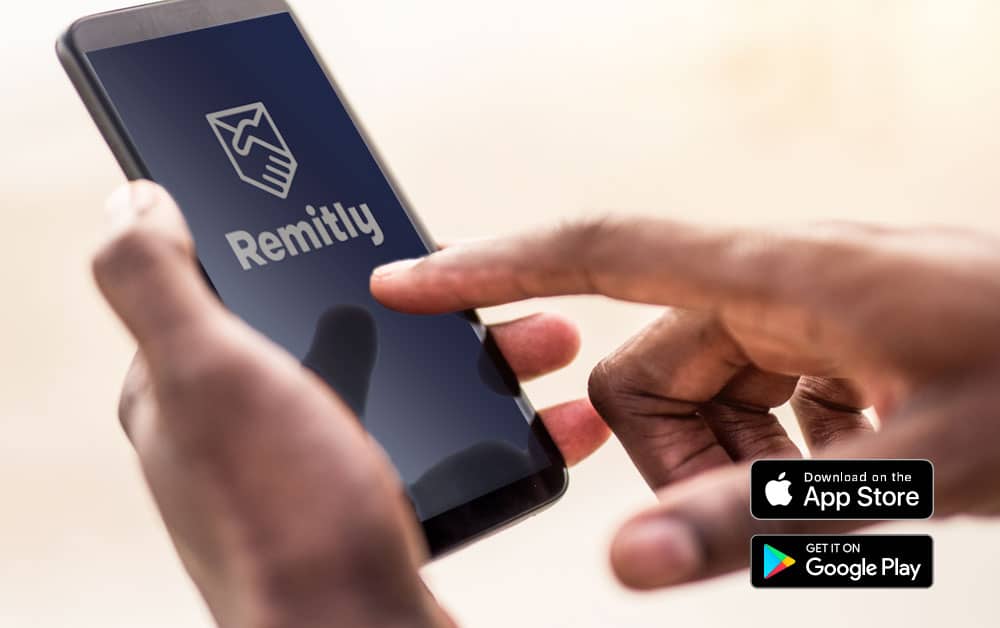As someone on a tight budget, you’re probably wondering how on earth you can find ways to save a little cash. While we’re not saying it’s easy, it is possible! Plus, you’ll feel better knowing you set aside some money for unexpected expenses or upcoming events like the holidays.
We created this guide especially for immigrants who are working to get established in their new countries.

Let’s learn some simple ways to save money, even on a tiny budget. Then we’ll look at the factors that make it harder to set money aside.
You’ve got this.
Ways to save money on a tight budget

1. Track your spending
The first step to saving money is to look at how you are spending money. Freedman says that it’s easy to lose track of where your finances go. Even if you’re not obviously overspending, you’d be surprised at how small amounts of cash can slip away. Even a few dollars here and there can add up to a lot of money.
Tracking your spending is as simple as keeping all your receipts and writing down every single purchase you make. Yes, even that 99 cent coffee you got while filling up on gas counts.
Once you’ve started recording all your purchases, take stock. Perhaps it’s a matter of cutting back a little. Or maybe you’re spending more in certain categories than you realize, such as on your phone bill or for streaming services, and it’s time to be more intentional.
Freedman suggests keeping a visual reminder of your financial goals. These might include saving money for holiday presents, an emergency fund, or a new car. That way you’ll remember the money you spend now is money you can’t spend on something else.
2. Find a support system
Navigating a new country is hard enough without having to worry about money. That’s why finding people who can support you and hold you accountable will help motivate you to save. Of all the money-saving tips, this may be the most crucial.
“We often overlook how powerful the positive influence of a friend or family member can be,” Henderson says. “For most immigrants, the family is a big part of why they decide to come to the US, and using that connection for good is powerful.”
To seek a support system, start telling your family and friends about what you’re trying to accomplish. You can even ask them to check in to see how you’re doing.
3. Create a small weekly saving challenge
Starting off with a large savings goal is great, but it can also lead to feeling overwhelmed and to abandoning the goal altogether.
Instead, start small — both in the dollar amount and the timeline. A weekly challenge lets you look at your financial habits in the short term. It also allows you to see the effects of your changing habits. Then, as you keep going, you can up the ante.
For example, I start off my savings at $1 and put it in an envelope, then increase that amount to $2 the next week. Keep increasing that amount to where it’s still comfortable for you to save each week.
Seeing this amount add up — no matter how small—serves as proof that you have what it takes to save.

4. Raid your pantry
Most people have items in their fridge or pantry they don’t know are there. This can lead to food waste getting groceries you don’t need. Instead, challenge yourself to use up everything in your cupboards, fridge and freezer before going to the grocery store.
Freedman has done this challenge to much success, even though some nights she’s eaten strange food combinations.
“You’ll be fed, and it will be one more night without having to go grocery shopping,” she says.
Then, take what money you save from your grocery budget and stick it in a separate savings account.
5. Try a budgeting tool
There are plenty of free tools available to help you keep track of where your money is going and stick to a budget. Apps like Mint or Dave Ramsey’s app EveryDollar are popular choices.
Many banks now build in features for tracking your monthly budget right in their apps, too.
Using an app or spreadsheet, you can stay on top of your finances and set aside money for savings.
Henderson suggests doing an online search and trying a few before settling on your favorite.
6. Use cash
Using cash allows you to see where your money is going physically. Plus, you can’t spend more than you have, unlike with credit cards or debit cards.
Using cash will also help you be more mindful about when and where you spend money.
Some people like to categorize their spending by placing various amounts of cash in budgeting envelopes. For example, you have $100 set aside for groceries, and you place that amount in an envelope. Once that money’s gone, it’s gone.
7. Scrutinize large expenses
While it’s great to cut corners in all areas of your budget, cutting down on your biggest expenses can help you save money faster.
Take a look at your largest expenses such as housing, food, utilities, and transportation. Can you negotiate your rent or find a less expensive place to live? Can you turn down the thermostat a few degrees?
Some suggestions on how you can trim down your largest expenses include:
- Negotiating a lower price on your current car insurance plan
- Switching mobile carriers or changing your cell phone plan (to less data, for example)
- Negotiating a lower rent if you offer to do some repairs around the landlord’s property
If you’re able to cut back, take what you would have spent and send it straight to savings.
8. Sell things you don’t use
Look around to see what items aren’t being used that have some value. You can take the proceeds of what you sell and use that to start your savings account.
Gather items and start searching for websites, apps, or local stores that might pay you for them. Popular items include books, electronics, and even certain brands of clothes.
The amount you’ll get will depend on the demand for the item and its condition. eBay is one of the most popular sites for making sales like these.
9. Make comparison shopping a habit
You’d be surprised at how many stores will have varying prices for the same items, online and in your local area. Before running errands, take some time to look around online to see where you can get the best deal.
There are also browser extensions and apps that search for coupons and do the comparison shopping for you—which helps when you’re short on time. New apps like Ibotta even let you earn cash back on regular purchases; it’s worth investigating to see if this could make a difference to your bottom line.
10. Invest in yourself
Learning about personal finances and ways to increase your marketable skills will help you in all areas of your life. Perhaps that book you picked up at the library can teach you how to negotiate for a higher salary, helping to give some breathing room in your tight budget.
Even learning more about cooking can save you money on eating out. Remember to make yourself and your future a priority.
Saving money for the holidays
With only a few weeks to go before the holiday season is in full swing, it can feel like it’s impossible to save money for gifts without going into debt.
However, if you take some of the above steps and start applying them now, you’d be surprised at how much money you can set aside.
Here are some other ways you can afford the upcoming holiday season:
- Shop at dollar stores – You can find decent gift wrap and decorations, leaving you with more money to purchase gifts or food for your holiday meals.
- Buy fewer presents – It’s natural to want to go all out, but friends and family will understand if you can’t afford to do so. Instead, stick to a smaller list like your immediate family. Consider sending a group gift to fund a holiday meal rather than individual gifts, which can help your money go farther.
- Temporarily cut down – Once you’ve tracked your spending, it’s easy to see if there are ways to cut back for a few weeks. Remind yourself that it’s only for a few weeks and things can go back to normal once the holiday season is over. For example, maybe you can take public transportation instead of driving your car and use what you save on gas towards presents.
- Aim for less expensive presents – It’s the thought that counts, not the present itself. Perhaps you’re a great cook — consider baking cookies or creating a recipe book. Small items like framed photos can make very satisfying gifts.
- Save money on fees and rates – Research exchange rates and send money home when the rates are high. Try a money transfer app like Remitly to get lower fees on transfers than you typically would from a bank or agent.
- Set up a small automatic transfer – You can set this up from your checking account to a saving account so the transfer goes into effect at the end of the month These small transfers will add up.

Why it’s so hard to save money
If you’re making a fairly low income, it’s understandable that it feels impossible to save any money. Your job choices may be limited for now, as you’re settling into a new country.
Not only that, but you need to figure out how to manage your monthly income so you can pay for necessities.
Donna Freedman, a financial journalist and author of Your Playbook For Tough Times: Living Large On Small Change, For The Short Term Or The Long Haul, suggests that struggling with day-to-day affairs makes it hard to plan for the future.
“When you’re living close to the bone, it can seem like you spend all your time putting out each day’s fires,” she says. “You don’t feel like you have any ‘extra’ money, so you don’t feel you can save for emergencies and it’s so stressful to live this way.”
Even if you make enough to cover the bills, your budget may be tight. For example, because you want to help your loved ones, you end up sending a large chunk of your paycheck home.
Scott Henderson, an Accredited Financial Counselor, says that the way you were raised can also affect the way you view savings.
“If you were raised in another part of the world not able to save money, it may be hard to start saving, especially if none of your friends or family members are big savers,” he says.
He adds, “based on my experience working with many individuals and families, these are a big challenge for people.”
Fortunately, many of these ways to save money on a tight budget are not complicated. With time, they can become a habit.
You can do this
Following these ways to save money on a tight budget may be challenging. Trust yourself. With a little creativity, it can be done.
Start with the list above and remind yourself that you’re investing in your financial health.
As you see your savings grow from a few dollars to a few hundred, don’t forget to pat yourself on the back for all the hard work it took to get there.
